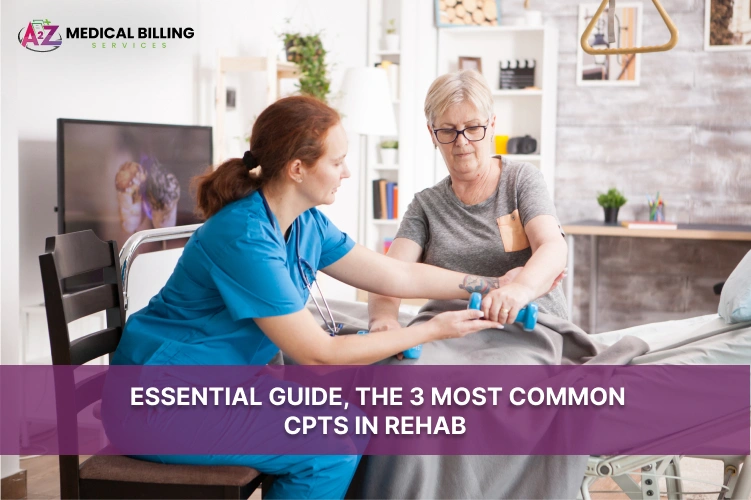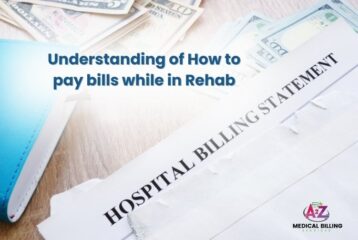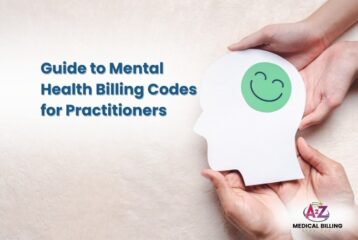Are you experiencing issues with reimbursement claims in your rehabilitation practice? Handling claims can be challenging, especially when they are consistently denied. Typically, these denials arise from incorrect CPT codes or gaps in documentation. These issues slow down the reimbursement process and increase the administrative load on healthcare providers.
Understanding and correctly applying the 3 most common CPT codes is critical for efficient billing in rehabilitation settings. This guide focuses on CPT 97110 for Therapeutic Exercise, CPT 97112 for Neuromuscular Re-education, and CPT 97530 for Therapeutic Activities. It offers guidance on properly documenting these services to maximize reimbursement chances and avoid claim rejections.
CPT 97110: Therapeutic Exercise
Therapeutic exercise is fundamental in rehab, improving strength, endurance, and flexibility.
Documentation Requirements
Proper documentation for CPT 97110 is essential for accurate reimbursement. Key elements include:
- A detailed description of the exercises performed
- Specific body parts targeted
- Duration and frequency of exercises
- Patient progress and outcomes
Practical Applications
CPT 97110 is used in various rehab settings to address different patient needs. Common applications include:
- Post-surgery rehabilitation to restore mobility
- Strengthening exercises for chronic pain management
- Flexibility training for injury prevention
Common Mistakes and Solutions
Avoiding errors in billing for CPT 97110 ensures smooth claim processing. Common mistakes include:
- Incomplete documentation: Ensure all required details are recorded.
- Incorrect coding: Double-check the use of CPT codes.
- Overlapping services: Clearly distinguish CPT 97110 from other therapeutic activities.
CPT 97112: Neuromuscular Re-education
Neuromuscular re-education, coded as CPT 97112, is important for patients needing rehabilitation to restore movement functions lost due to neurological or musculoskeletal conditions. This code is essential for billing purposes and therapeutic strategy in rehab settings.
Documentation Requirements: CPT 97112
Proper documentation for CPT 97112 includes:
- Detailing the specific muscles or motor functions targeted.
- Describe the exercises and their therapeutic intent.
- Recording the duration and direct one-on-one nature of the session.
Practical Applications: CPT 97112
Neuromuscular re-education is applied in scenarios such as:
- Recovery from stroke or brain injury to improve balance and coordination.
- Rehabilitation after orthopedic surgeries to restore muscle control.
- Treatment of conditions like cerebral palsy and multiple sclerosis to enhance daily function.
Common Mistakes and Solutions: CPT 97112
Common documentation errors include vague descriptions and missing session details. Solutions involve:
- Linking therapeutic exercises to diagnosed neuromuscular deficits.
- Use bullet points to list exercises, goals, and outcomes.
- Regular training for staff on updates in coding practices and documentation requirements.
CPT 97530: Therapeutic Activities
Therapeutic activities coded under CPT 97530, are crucial in rehab for developing, restoring, and reinforcing functional skills and physical performance.
Documentation Requirements: CPT 97530
Effective documentation for CPT 97530 should include:
- Detailed descriptions of the dynamic activities performed.
- The Functional goals are targeted through different activities to develop physical performance.
- Accurate timing of the therapy session to ensure compliance with billing requirements.
Practical Applications: CPT 97530
Therapeutic activities typically involve:
- Tasks that mimic daily life activities to improve functional mobility.
- Exercises that enhance motor skills are needed for patient independence.
- Strategies that integrate multiple muscle groups to improve coordination and balance.
Common Mistakes and Solutions: CPT 97530
Common pitfalls in billing for CPT 97530 include:
- Inadequate documentation that fails to justify the medical necessity of activities.
- Vague descriptions that do not specify how activities relate to treatment goals.
- Solutions involve training staff on specific documentation practices and routinely reviewing billing codes for accuracy.
Common Modifiers for the 3 Most Common CPTs in Rehab
Understanding the correct application of modifiers ensures accurate billing and optimal reimbursement for rehabilitation services.
Modifier Use with CPT 97110: Therapeutic Exercise
CPT 97110, Therapeutic Exercise modifier is commonly used to specify, the service was performed by a physical therapist as part of an outpatient therapy plan.
| Modifier | Descrition |
| 59 | Differentiates distinct services when combined with other treatments on the same day. |
| 76 | Differentiates distinct services when combined with other treatments on the same day. |
Modifier Application in CPT 97112: Neuromuscular Re-education
In CPT 97112 for Neuromuscular Re-education, the modifier 59 is often used to indicate that the procedure is distinct and separate from other services provided on the same day.
| Modifier | Description |
| 59 | Use for claiming this service when performed in cooperation with other modalities targeting different outcomes. |
| GX | Alerts that service is expected to be denied as not reasonable or necessary. |
Modifiers for CPT 97530: Therapeutic Activities
Modifiers GP, GO, or GN for CPT 97530 indicate that service was provided by a physical, occupational, or speech therapist, respectively.
| Modifier | Description |
| GP | for services delivered by a physical therapist, |
| GO | for services delivered by an occupational therapist, |
| GN | for services delivered by a speech-language pathologist. |
Benefits of Proper Coding and Documentation
Proper coding and documentation are critical to the success of rehabilitation practices, ensuring efficient operations and patient satisfaction.
Ensuring Reimbursement
Proper coding directly impacts the reimbursement process for healthcare services. Accurate use of CPT codes ensures that healthcare providers are compensated correctly and promptly for their services, minimizing the risk of claims denials and delays.
Improving Patient Care
Beyond financial implications, precise coding and documentation enhance patient care to ensure treatments are accurately recorded and tracked. This facilitates better patient outcomes by enabling consistent and modified treatment plans.
Conclusion
In conclusion, understanding and applying the three most common CPT codes in rehabilitation—CPT 97110, 97112, and 97530 ensures correct billing and enhanced patient care. Accurate documentation and appropriate use of modifiers are crucial for securing timely reimbursements and improving treatment outcomes. This guide provides essential knowledge for healthcare providers to manage medical billing and coding more effectively, thereby supporting the operational efficiency and quality of healthcare services in rehabilitation.
FAQs
1. What are the 3 most common CPTs used in rehabilitation?
The three main CPTs in rehab are 97110 for Therapeutic Exercise, 97112 for Neuromuscular Re-education, and 97530 for Therapeutic Activities.
2. Why is accurate documentation crucial for CPT 97110?
Accurate documentation for CPT 97110 ensures proper reimbursement and reflects detailed therapy progress.
3. How does CPT 97112 support neuromuscular re-education?
CPT 97112 is critical for billing neuromuscular re-education sessions focused on improving movement and coordination.
4. What role do modifiers play in coding for CPT 97530?
Modifiers like GP, GO, and GN specifies the type of therapist providing therapeutic activities, impacting billing and compliance.
5. How does proper coding benefit patient care in rehab?
Proper coding ensures treatments are accurately tracked and reimbursed, enhancing overall patient care quality and treatment effectiveness.



